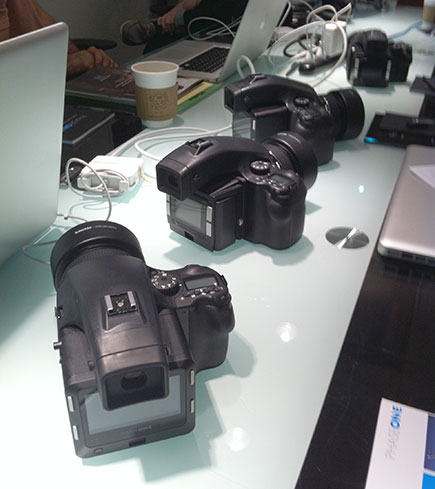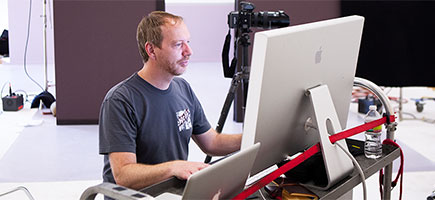My move to LA has certainly come with some unexpected twists and turns. That’s ok; I’m a huge fan of serendipity. I alluded to one of those twists in my post about my unintentional but valuable introduction to assisting. I’m talking about becoming a digital tech.
When I first learned what a digital tech was while watching a Chase Jarvis video on workflow, I thought, “Seriously? They hire a guy whose sole job is to copy files from the card to the computer? That’s ridiculous.” Well, now I am that guy. Only, it’s much more complicated than I imagined. I see the value in it now, and not just because there’s a paycheck involved (a higher paycheck than a 1st assistant, I might add).
I’ve always been a one-man show from the photography end. Most of my shoots have been on a shoestring budget where I couldn’t really afford assistants let alone a guy to transfer files. Though, one shoot, I had help from a friend whom I trusted enough to do the file transfer and, looking back, it was one less thing I had to worry about. And that is the key. On larger shoots, with managing assistants, talent, hair & make up, stylists, managers and clients, the last thing a photographer wants to worry about is transferring files. It would be a distraction and kill the flow of the shoot.
 John, the Phase One instructor, showing off the camera and digital tech rig.
John, the Phase One instructor, showing off the camera and digital tech rig.
The files are everything; the entire point of the shoot. They’re what the client is paying the photographer to produce. Making sure the files are safely transferred, named properly, metatagged and backed up is critical. In addition, on most commercial shoots, the clients want to see the photos as they are shot, which means the camera is tethered to the computer via USB or Firewire. This requires special software and troubleshooting skills and, of course, different cameras use different software, all of them slightly different in operation.
Shortly after I started assisting Michael Grecco, I filled in a couple times doing double-duty as a digital tech. Michael uses Hasselblad for medium format so I quickly learned the Phocus software for Hasselblad tethered capture. I know my way around a Mac and am no stranger to imaging software so it didn’t take me long to get comfortable. I showed promise and Michael started grooming me to be a digital tech for him and for a turnkey gear rental and support company he was reviving called Image Mechanics.

These were the Phase One cameras we had to play with.
Michael double-booked me with an experienced digital tech for a shoot and I learned a few more things including the fact that most non-Hasselblad shoots are handled by Capture One Pro software. I got myself a copy and found some resources online, including a podcast, to learn the basics. I found out about a scheduled Phase One Certified Professional training in LA and enrolled. After about 30 hours of online training and testing I attended an intensive 2-day hands-on training and passed a written certification test (97%). I am now a Phase One Certified Professional.

For my own workflow and organizational needs, I started to research best workflow practices and digital asset management (DAM). It can be fairly complicated to understand, but once implemented, will save big on time and money in the long run. Combined with my computer savvy and experience I have decided to add consulting to my assisting and digital tech services. I have just completed a website to advertise these services. Check it out here.
You might ask, “Why put the effort into this instead of your own photography?” Good question. The simplest answer is money. It takes time to build the contacts and clients needed to have steady work. Doing this keeps me working in the photo industry, meeting industry people, and gaining valuable experience. I liken it to a guy wants to be a rock star as a lead singer. He’s a good guitar player and can get paid to sit in with established rock stars playing guitar. Don’t you think he’d be foolish to pass it up because the gigs aren’t as lead singer of his own band?
That’s what I thought.
Bonus: I was a digital tech for a shoot for a Forbes magazine cover. I got an all-expense paid trip to Las Vegas. Stayed at the Palms and had an amazing dinner there and then met Kathy Ireland. Here’s a behind-the-scene video (I show up around the 2:25 mark).

